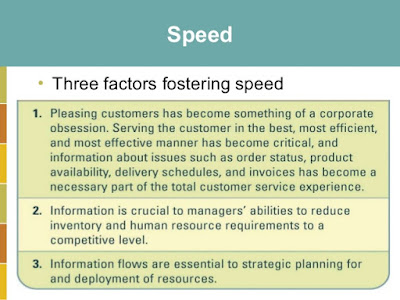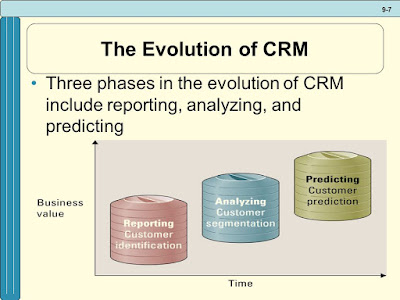CHAPTER 10 (MGT300)
Extending the Organization-
Supply Chain
Supply Chain Management
- · The average company spends nearly half of every dollar that it earns on production
- · In the past, companies focused primarily on manufacturing and quality improvements to influence their supply chains
Basic of Supply Chain
- · The supply chain has three main links:
1. Materials flow from suppliers and
their “upstream” suppliers at all levels
2. Transformation of materials into
semi-finished and finished products through the organization’s own production
process
3. Distribution of products to
customers and their “downstream” customers at all levels
- · Organizations must embrace technologies that can effectively manage supply chains
Information Technology’s Role in
the Supply Chain
- · IT’s primary role is to create integrations or tight process and information linkages between functions within a firm
Visibility
- · Supply chain visibility- the ability to view all areas up and down the supply chain
- · Bullwhip effect- occurs when distorted product demand information passes from on entity to the next throughout the supply chain
Consumer Behaviour
- · Companies can respond faster and more effectively to consumer demands through supply chain enhances
- · Demand planning software- generates demand forecasts using statistical tools and forecasting techniques
Competition
- · Supply chain planning (SCP) software- uses advanced mathematical algorithms to improve the flow and efficiency of the supply chain
- · Supply chain execution (SCE) software- automates the different steps and stages of the supply chain
Speed
- · Three factors fostering speed
·
Supply Chain Management Success
Factors
- · SCM industry best practices include:
1. Make the sale to suppliers
2. Wean employees off traditional
business practices
3. Ensure the SCM system supports
the organizational goals
4. Deploy in incremental phases and
measure and communicate success
5. Be future oriented
SCM Success Stories
- · Top reasons why more and more executives are turning to SCM to manage their extended enterprises
- · Numerous decision support systems (DSSs) are being built to assist decision makers in the design and operation of integrated supply chain
- · DSSs allow managers to examine performance and relationships over the supply chain and among:
-
Suppliers
-
Manufacturers
-
Distributors
-
Other
factors that optimize supply chain performance




Comments
Post a Comment